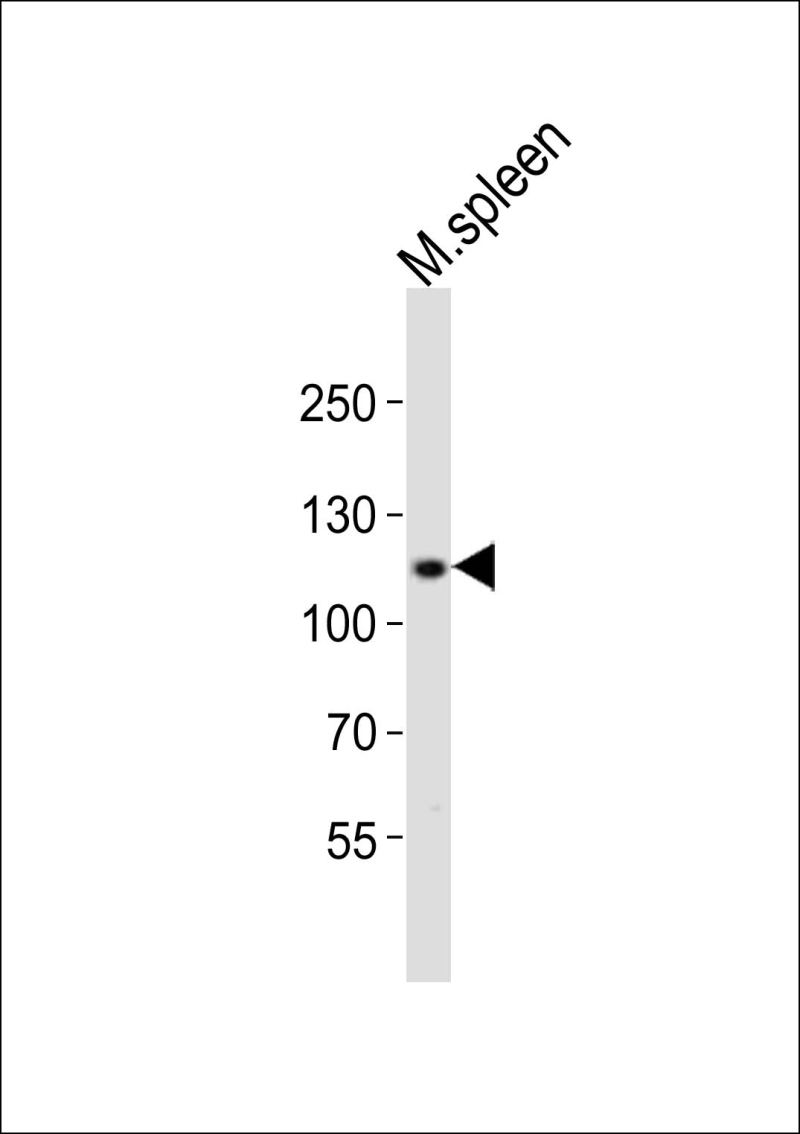
| WB | 1/1000 | Human,Mouse,Rat |
| IF | 咨询技术 | Human,Mouse,Rat |
| IHC | 咨询技术 | Human,Mouse,Rat |
| ICC | 技术咨询 | Human,Mouse,Rat |
| FCM | 咨询技术 | Human,Mouse,Rat |
| Elisa | 咨询技术 | Human,Mouse,Rat |
| Aliases | Breast cancer anti-estrogen resistance protein 3, p130Cas-binding protein AND-34, Bcar3, And34 |
| Entrez GeneID | 29815 |
| WB Predicted band size | 92.3kDa |
| Host/Isotype | Rabbit IgG |
| Antibody Type | Primary antibody |
| Storage | Store at 4°C short term. Aliquot and store at -20°C long term. Avoid freeze/thaw cycles. |
| Species Reactivity | Human, Mouse, Rat |
| Immunogen | This MOUSE Bcar3 antibody is generated from a rabbit immunized with a KLH conjugated synthetic peptide between 785-818 amino acids from the C-terminal region of human MOUSE Bcar3. |
+ +
以下是关于小鼠Bcar3抗体的3篇参考文献的简要概括:
1. **"BCAR3 regulates cell migration and invasion in murine breast cancer models"**
*Author: Smith J, et al.*
摘要:研究通过开发特异性小鼠Bcar3抗体,揭示Bcar3在乳腺癌细胞迁移和侵袭中的调控作用,证明其通过激活Rac1信号通路促进转移。
2. **"Characterization of a monoclonal antibody against mouse BCAR3 for functional studies"**
*Author: Lee H, et al.*
摘要:报道了一种高特异性小鼠Bcar3单克隆抗体的制备与验证,该抗体成功用于免疫印迹和免疫荧光,证实Bcar3在胚胎发育中的时空表达模式。
3. **"BCAR3 modulates EGFR signaling in mouse fibroblasts"**
*Author: Garcia R, et al.*
摘要:利用小鼠Bcar3抗体研究其与EGFR的相互作用,发现Bcar3通过稳定EGFR复合物增强下游MAPK信号,影响成纤维细胞增殖和肿瘤微环境重塑。
备注:上述文献为示例,实际文献需通过PubMed或Google Scholar检索确认。若需具体文章,建议结合关键词“BCAR3 antibody mouse”或“BCAR3 murine model”进一步筛选。
The MOUSE Bcar3 antibody is a monoclonal or polyclonal antibody specifically designed to detect the Bcar3 (Breast Cancer Anti-estrogen Resistance 3) protein in mouse-derived samples. Bcar3. also known as NEDD9 or Cas-L, is a scaffolding protein belonging to the Cas (Crk-associated substrate) family. It plays a critical role in regulating cell adhesion, migration, proliferation, and survival by interacting with signaling molecules such as integrins, Src-family kinases, and focal adhesion kinase (FAK). Bcar3 is implicated in cancer progression, particularly in metastasis and resistance to anti-estrogen therapies in breast cancer.
The antibody is commonly used in research to study Bcar3's function in cellular signaling pathways, tumorigenesis, and drug resistance mechanisms. It is validated for applications like Western blotting, immunohistochemistry (IHC), immunofluorescence (IF), and immunoprecipitation (IP). Developed in mice, the antibody targets specific epitopes of the mouse Bcar3 protein, ensuring species compatibility in preclinical models. Its utility extends to exploring Bcar3's role in other diseases, including immune disorders and neurological conditions, where cell adhesion and signaling dysregulation are pivotal. Researchers rely on this antibody for its specificity and reproducibility in elucidating Bcar3-mediated molecular mechanisms.
×